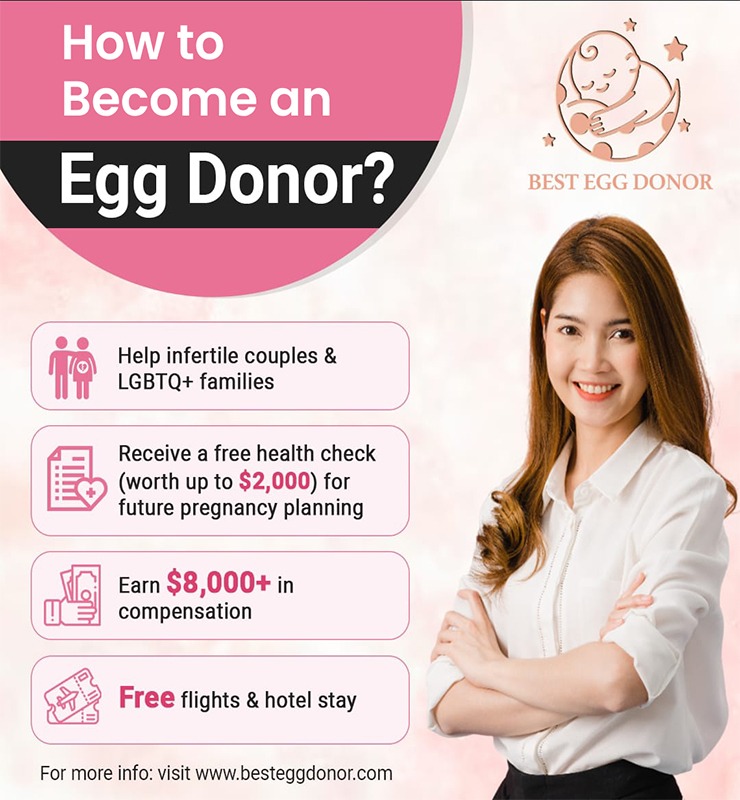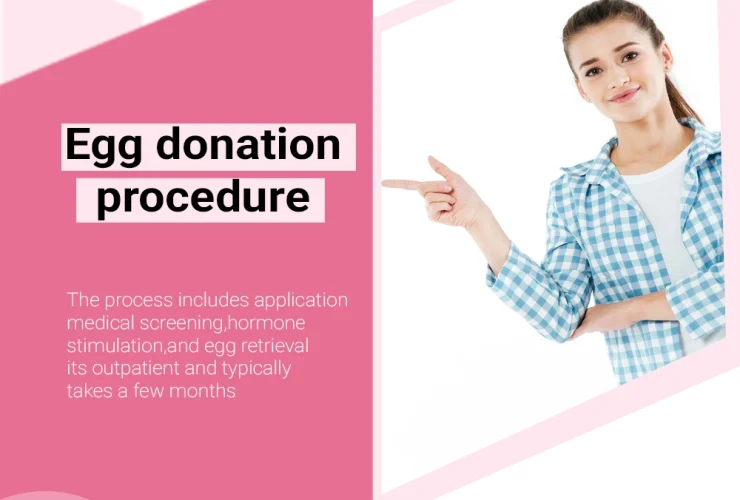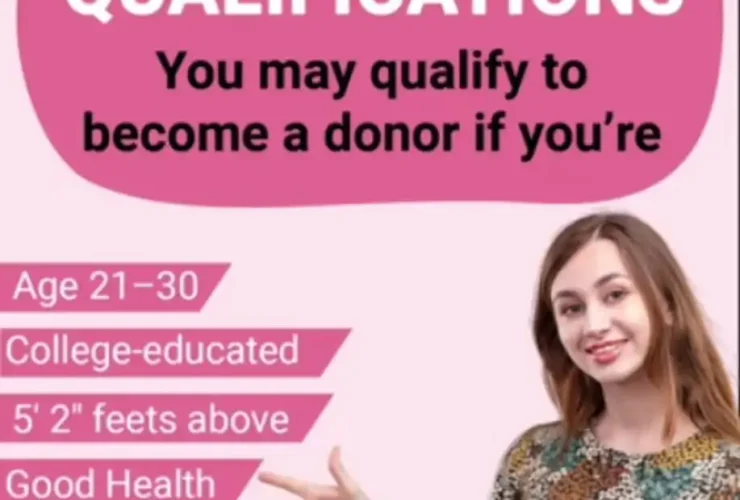Egg donation becomes one of the best things a person decides in life not only emotionally but also financially. The increasing need of fertility services has created a situation whereby there is a number of women undoubtedly taking into account how to sell my eggs, or going to the extent of finding a clinic with a humane procedure to sell my eggs at, safely and with propriety.
Are you considering it? Then more than likely you have questions. This blog simplifies everything and explains it simply, in a manner that allows you to understand whether following this path is suitable to you.
What Is Egg Donation?
Egg donation is the procedure in which a healthy woman gives her eggs to another person or a couple to get a child. Such eggs are typically harvested with the help of a medical intervention and applied to such an assisted reproductive technology as IVF (In Vitro Fertilization).
A number of women who research the process of becoming an egg donor end up doing so after having heard how valuable the gift is to families facing the problem of infertility. The decision needs to be both well informed and emotionally conceived.
Why Women Choose to Sell Their Eggs
Understanding how to sell your eggs starts with understanding why many women consider this option. Some motivations include:
- Helping someone start a family
- Financial compensation
- Access to health screenings
- A desire to make a difference
At Best Egg Donor, many first-time donors are amazed at how empowering the experience becomes.
Requirements to Become an Egg Donor
It is imperative to understand the requirements before entering into how to become an egg donor. Although some differences in the criteria can be found in various clinics, general eligibility is:
- 21-30 years of age
- A non-smoking physically healthy person
- Ladies menstrual periods
- There are no genetic diseases
- Sound mental state
The guidelines provide safety to both the donor and the recipient with regard to the process.
The Egg Donation Process
When the eligibility has been established, the donor journey is initiated. It consists of a number of cautious measures in order to have a harmless and ethical procedure.
1. Application and Screening
Potential donors have to take medical evaluation, genetic tests, and psychological tests after completing a comprehensive application. These tests are useful to arrive at the determination of whether a person is a fit candidate.
2. Legal Agreements
It is essential to be under legal protection. This is taken to make sure that the rights are clarified and the terms of donation are clearly known by both sides.
3. Hormone Injections
To help her eggs to multiply in the ovaries, the donor undergoes hormone treatments so as to make her eggs multiply in the ovaries. This usually takes 10 -14 days.
4. Egg Retrieval
A smaller outpatient procedure is performed in a sedated condition. A thin needle with the help of ultrasound is used to remove the eggs in a gentle manner. It does not require more than 30 minutes.
Professionals oversee all these steps particularly, in cases where it is carried out with trusted institutions such as this one.
Is It Safe to Sell My Eggs?
A common question around how to sell your eggs is whether it’s safe. In most cases, egg donation is low-risk. Clinics take great care to ensure donor well-being before, during, and after the procedure.
However, some side effects such as bloating, mood swings, or mild discomfort can occur. These are temporary and usually resolve within days.
Things to Consider Before Egg Donation
To be an egg donor and become an egg donor, it is not sufficient to learn how to do so. It is also about matters of choice on whether it fits you emotionally and physically.
- Are you satisfied with the procedure in medicine?
- Are you well aware of your rights and responsibilities?
- Are you ready with the emotional dedication?
All the donors have their story. Whereas one person can do it because of economic purposes, another one can be motivated by the opportunity to create a family.
Compensation: What You Can Expect
Compensation is a logical point of interest as one goes about researching how to sell your eggs. How much people are paid depends on clinic and location but the average pay rate per cycle is either $5,000 to $10,000 or greater.
Best Egg Donor also pays a competitive compensation together with unmatched care to make sure the donors feel appreciated at all times.
Life After Donation
The time of recovery is usually less. Majority of the donors are back to their normal lives after a few days. Follow-ups of donors are conducted to ensure that everything went well.
One does not have to donate repeatedly. Nevertheless, another vivid experience does not always stop a woman, who wants to repeat the process after the successful first experience.
To better understand what life is after donation, reports of other, previous donors on such sites as this one tend to shed some light on the situation.
Final Thoughts
It is not only about learning how to become an egg donor but also about taking a responsible informed decision.
Be it the urge to know how to sell eggs, where to sell my eggs or just research to find the best organizations, it is important to trust those professionals with out-turns, transparency and care.
Best Egg Donor has also assisted thousands of women to safely donate their eggs as they fulfill dreams of the intended parents in the international market.
FAQs
Q1. What is the price of giving an egg?
Ans. The highest fee of an egg donor is between 5000 to 10000 dollars per cycle. The amount may vary slightly with regards to location, clinic, and the characteristics of the donors. Others can be encouraged by being paid an extra amount in case of repeated gifts.
Q2. What are the negative sides of egg donation?
Ans. Also claimed to be safe, its possible downsides feature short-term side effects such as bloating, headaches, and mood swings. And the Mental effect has to be taken into consideration. There are rare situations when ovarian hyperstimulation syndrome (OHSS) may develop. Safety and support should come with working with experienced professionals.
Q3. What is the number of eggs a woman may donate?
Ans. Eggs retrieved depend on a person. During a single cycle, 10 to 20 eggs are averagely collected. In most clinics, the limit is set to six donations, any number after that depends on health and the wish of the donor.






